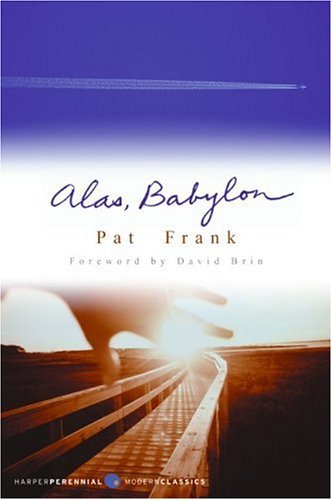What do you think?
Rate this book


323 pages, Paperback
First published January 1, 1959
”And the kings of the earth, who have committed fornication
and lived deliciously with her, shall bewail her, and lament for
her, when they shall see the smoke of her burning,
Standing afar off for the fear of her torment, saying,
Alas, alas, that great city Babylon, that mighty city! for in one
hour is thy judgment come. “ Revelations



A stark white flash enveloped their world. Randy felt the heat on his neck. Peyton [Randy’niece] cried out and covered her face with her hands. In the southwest, in the direction of Tampa, St. Petersburg, and Sarasota, another unnatural sun was born, much larger and infinitely fiercer than the sun in the east…A thick red pillar erected itself in the southwest, its base the unnatural sun. The top of the pillar billowed outward. This time, the mushroom was there. There was no sound except Peyton’s whimpering. Her fists were pressed into her eyes. A bird plunged against the screen and dropped to earth, trailed by drifting feathers. Within the pillar and the cloud, fantastic colors played. Red changed to orange, glowed white, became red again. Green and purple ropes twisted upward through the pillar and spread tentacles through the cloud. The gaudy mushroom enlarged with incredible speed, angry, poisonous, malignant. It grew until the mushroom’s rim looked like the leading edge of an approaching weather front, black, purple, orange, green, a cancerous man-created line squall…
When nuclear fireballs crisped Orlando and the power plants serving Timucuan County, refrigeration stopped, along with electric cooking. The oil furnaces, sparked by electricity, died. All radios were useless unless battery powered or in automobiles. Washing machines, dryers, dishwashers, fryers, toasters, roasters, vacuum cleaners, shavers, heaters, beaters – all stopped. So did the electric clocks, vibrating chairs, electric blankets, irons for pressing clothes, curlers for hair. The electric pumps stopped, and when the pumps stopped the water stopped and when the water stopped the bathrooms ceased functioning.



 come to my blog!
come to my blog!


